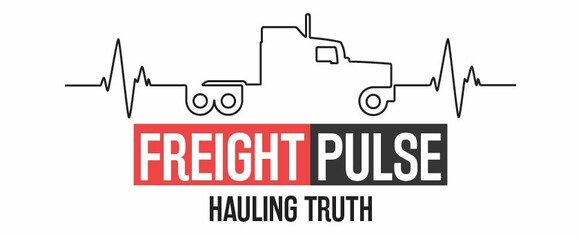Trucking Industry Pushes Back Against Century-Old Levy
Legislation aimed at repealing a World War I-era federal excise tax on new heavy-duty trucks, tractors, and trailers has been reintroduced in the U.S. House of Representatives. This tax, which adds a significant cost to purchasing commercial vehicles, has been widely criticized by trucking industry leaders and policymakers who argue that it hinders modernization and economic growth.
Rep. Doug LaMalfa (R-Calif.), a senior member of the Transportation and Infrastructure Committee, is leading the charge to eliminate the 12% federal excise tax on these vehicles. Known as the Modern, Clean, and Safe Trucks Act, the bill was reintroduced on March 27 after several previous unsuccessful attempts in Congress.
“For over a century, the federal excise tax on heavy-duty trucks has gone from a temporary wartime measure to fund World War I, to an outdated tax that punishes truck buyers,” LaMalfa stated, emphasizing that the tax discourages investment in newer, safer, and more fuel-efficient trucks. “This is the highest percentage-based tax Congress imposes on any product, yet it fails to be a reliable source of funding for the Highway Trust Fund. This tax forces buyers to stick with older, less efficient models and makes it harder for truckers to modernize their rigs, holding back the trucking industry from updating.”
LaMalfa, who has long been an advocate for repealing the tax, urged congressional colleagues to take action: “Let’s repeal this outdated tax and support the men and women who keep America moving.”
The bill enjoys bipartisan support, with lead co-sponsors including Reps. Darin LaHood (R-Ill.), Max Miller (R-Ohio), Chris Pappas (D-N.H.), and Salud Carbajal (D-Calif.). Advocates argue that this tax can add $15,000 to $30,000 to the cost of new heavy trucks, trailers, and semi-trailer chassis, making it an unnecessary financial burden on the trucking industry.
“Repealing the outdated federal excise tax on heavy-duty trucks which was first enacted over a century ago is essential to modernize our transportation sector and help reduce emissions,” said Carbajal, who also serves on the transportation policy panel.
Miller, a member of the influential Ways and Means Committee, added, “America’s truckers work hard to keep our economy moving, but outdated policies like this federal excise tax on heavy trucks and trailers make it harder for them to upgrade to safer, more reliable equipment.” The bill has been referred to the committee, though its future consideration remains uncertain.
Industry Leaders Applaud the Bill
Key trucking industry stakeholders have voiced strong support for the bill, arguing that the tax is a major financial obstacle preventing small trucking businesses from investing in modern, cleaner, and safer vehicles.
Chris Spear, CEO of the American Trucking Associations (ATA), highlighted the economic burden imposed by the excise tax: “First implemented over a century ago to help finance America’s effort in World War I, the [federal excise tax] has become the largest excise tax on any product, adding $24,000 to the cost of each new clean-diesel tractor-trailer.”
Spear further emphasized that “keeping this antiquated tax on the books imposes an enormous hardship, particularly for the small fleets, family businesses, and independent truckers who make up the overwhelming majority of trucking. Removing this burden will allow motor carriers to replace their trucks with modern, safer, and cleaner equipment, which will in turn provide a boost to manufacturing jobs.” He praised the bipartisan group of lawmakers for their leadership in addressing the issue, stating that repealing the tax would improve highway safety, reduce emissions, and strengthen the economy.
Ryan Streblow, president and CEO of National Tank Truck Carriers (NTTC), echoed these concerns: “Repealing this 12% tax would empower our industry to reinvest in the specialized equipment we need equipment that features critical safety enhancements and cleaner-emission power units to serve the U.S. bulk segment. As costs continue to rise, this tax remains a significant barrier to upgrading our fleets and supporting a safer, more sustainable supply chain.”
Highway Trust Fund and Transportation Infrastructure

The Highway Trust Fund, established during the Eisenhower administration, was designed to support state transportation projects and infrastructure improvements. However, it relies primarily on fuel tax revenues, which have proven to be insufficient in recent years. While proponents of the excise tax argue that it helps support the fund, critics contend that it discourages fleet modernization and does not provide a stable funding source.
As Congress debates the future of the federal excise tax, industry leaders and lawmakers continue to push for policies that encourage investment in cleaner, more efficient commercial vehicles. With the trucking industry playing a crucial role in the American economy, removing barriers to modernization remains a top priority for many stakeholders.

